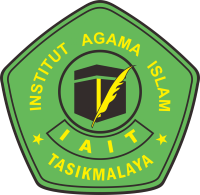Innovative Flipped Classroom Learning in Improving Critical Thinking Skills in Elementary School Students
DOI:
https://doi.org/10.61166/kasyafa.v2i2.110Keywords:
Flipped Classroom, critical thinking, learning innovation, elementary school, Independent CurriculumAbstract
This study aims to explore the application of the innovative Flipped Classroom learning model to improve critical thinking skills in elementary school students. The Flipped Classroom model reverses the traditional learning sequence by providing learning materials to students before face-to-face sessions, allowing class time to be used for discussion, collaboration, and problem-solving. Through this approach, students are encouraged to be more active, independent, and reflective in the learning process. The research method used was a descriptive qualitative study using observation, interviews, and documentation techniques with teachers and fifth-grade students at an elementary school in Indonesia. The results indicate that the implementation of the Flipped Classroom significantly improves indicators of critical thinking skills, such as the ability to analyze, evaluate, and summarize information. These findings contribute to the development of learning strategies that align with the demands of the Independent Curriculum, which emphasizes differentiated learning and the strengthening of critical thinking skills.
References
Aulianisyah, Rahmi, Rini Budiharti, Ahmad Fauzi, Menengah Atas, and Rahmi Aulianisyah. 2022. “Penerapan Strategi Pembelajaran Flipped Classroom.” Jurnal Sains Edukatika Indonesia (JSEI) 4 (2).
Fianingrum, Fitri, Novaliyosi Novaliyosi, Hepsi Nindiasari, and Syamsuri Syamsuri. 2022. “Efektivitas Model Pembelajaran Flipped Classroom Terhadap Pembelajaran Matematika.” EDUKATIF : JURNAL ILMU PENDIDIKAN 4 (5). https://doi.org/10.31004/edukatif.v4i5.3387.
Hamzah, Amir. 2020. “Metode Penelitian Kepustakaan (Library Research).” Literasi Nusantara Abadi 5 (1).
N.W.S. Darmawati. 2022. “Model Pembelajaran Inovatif Bagasa Indonesia Berbasis Flipped Classroom Pada Era Digital Dengan Pemanfaatan Google Classroom.” Jurnal Pendidikan Dan Pembelajaran Bahasa Indonesia 11 (2). https://doi.org/10.23887/jurnal_bahasa.v11i2.749.
Novianti, Hartia, and Rukminingsih Rukminingsih. 2021. “Pelatihan Pengembangan Blended Learning Melalui Model Flipped Classroom : Model Pembelajaran Alternatif Di New Normal Era.” J-ADIMAS (Jurnal Pengabdian Kepada Masyarakat) 9 (2). https://doi.org/10.29100/j-adimas.v9i2.2081.
Nugraha, Derry. 2023. “Peningkatkan Kemampuan Berpikir Kritis Mahasiswa Akibat Efek Penggunaan Model Pembelajaran Flipped Classroom Dan Mind Mapping.” Jurnal Ilmu Pendidikan Muhammadiyah Kramat Jati 4 (2): 69–73.
Nuryadin, Asep, Muhammad Rijal Wahid Muharram, and Rangga Gelar Guntara. 2021. “Penggunaan Model Flipped Classroom Berbantuan Digital Tools Untuk Meningkatkan Kualitas Pembelajaran Di Sekolah Dasar Selama Masa Pandemi Covid-19.” COLLASE (Creative of Learning Students Elementary Education) 4 (3): 348–61.
Robbani, Hamdan. 2025. “Pengembangan Keterampilan Berpikir Kritis Melalui Pembelajaran Berbasis Masalah.” ABDUSSALAM: Jurnal Pendidikan Dan Kebudayaan Islam 1 (1): 79–85.
Syafruddin, Syafruddin, Nur Raihan, Astri Astri, Dian Fitri, and Najrah Najrah. 2025. “Pengaruh Flipped Classroom Terhadap Hasil Belajar IPS Di EraDigital Siswa Sekolah Dasar.” Jurnal Pesona Indonesia 2 (2): 18–23.
Downloads
Published
How to Cite
Issue
Section
License
Copyright (c) 2025 Viera Setyani, Widia Ningsih, Nur Afni Pratiwi, Sugianoor, Siti Munfiatik

This work is licensed under a Creative Commons Attribution 4.0 International License.












